The following funding opportunities have been announced. Please follow the links for more information:
AHRC
Arts and Humanities Research Council and BBC Radio 3 invite applications for the New Generation Thinkers of 2016 scheme. The scheme aims to support early career researchers to communicate their research findings to those outside the academic community through BBC broadcasting. The scheme allows reseracers an opportunity to develop their own programme for BBC Radio 3 and a chance to regularly appear on air. Applications are welcomed in all areas of arts and humanities and those in social sciences and medical science whose work intersects with arts and humanities.
Maximum award: Not specified. Closing date: 07/01/16.
British Academy
British Academy invites applications for its International Partnership and Mobility Scheme, which aims to support the development of partnerships between the UK and other areas of the world where research excellence could be strengthened by new, innovative initiatives and links. Any branch of the humanities or social sciences is eligible and the intended focus is on collaborative research of a mutual interest, rather than purely establishing networks.
Maximum award: £30,000. Closing date: 10/02/16.
Economic and Social Research Council
Economic and Social Research Council invites proposals for its Secondary Data Alaysis Initiative (SDAI), which aims to deliver high quality, high impact research through the deeper exploitation of major data resources created by ESRC and other agencies. Funding is available for up to 18 months. Proposals should address the following core principles: maximising the use of key ESRC-funded data resources; developing the capacity of early career researchers to undertake research using complex data resource; working collaboratively with non-academic stakeholders and ensuring that the accumulated learning and ongoing research impacts from previous phases and projects is captured.
Maximum award: £200,000. Closing date: No deadline.
Medical Research Council
Medical Research Council in partnership with the Department of Health’s National Institute for Health Research invites proposals for the Methodology Research programme. Proposals may address: Research methods in disciplines underpinning health research including biomedical, behavioural and social science, experimental and stratified medicine, rendomised trials, cohorts and other research designs investigating health, healthcare, health services and health policy; Methods for effective regulation (including indices for decision making), approval, adaptation and reporting of new interventions (including behavioural); Research methods for valid measures of health, e.g. health outcomes, exposure and risk (including behaviour, cognition and emotion) and wellbeing.
Maximum award: Not specified. Closing date: 21/06/16.
Natural Environment Research Council
Natural Environment Research Council and the Biotechnology and Biological Sciences Research Council invite applications for their Knowledge Exchange Fellowship in the area of aquaculture. The award will invest in a suitably qualified academic to broker links between academics and business within the UK aquaculture community and provide expert input and advice to the UK aquaculture network.
Maximum award: Not specified. Closing date: 17/03/16.
Natural Environment Research Council’s British Antarctic Survey Institute invites applications for its Polar Ship Research Opportunities, which support scientists who have secured funding and require access to work onboard polar research ships. The marine facilities planning service allows scientists to apply for access to marine equipment and ship-time and there are two types of applications: ship-time and equipment; marine equipment only.
Maximum award: Not specified. Closing date: No deadline.
Royal Society
Royal Society invites nominations for its Medals and Awards. Nominations can be made for excellent candidates from accross various disciplines and nominations for women, under-represented minorities and those undertaking research in industry are particularly encouraged, to increase diversity in awards. Please visit the award page for details of each award.
Maximum award: £10,000. Closing date: 01/02/16.
If you are interested in submitting to any of the above calls you must contact RKEO with adequate notice before the deadline.
Please note that some funding bodies specify a time for submission as well as a date. Please confirm this with your RKEO Funding Development Officer
You can set up your own personalised alerts on Research Professional. If you need help setting these up, just ask your School’s/Faculty’s Funding Development Officer in RKEO or view the recent blog post here.
If thinking of applying, why not add notification of your interest on Research Professional’s record of the bid so that BU colleagues can see your intention to bid and contact you to collaborate.
 I had the opportunity to organise a research dissemination event for our Digital Media Design Undergraduate students, opening the event to MA and PhD students. Different topics were presented with touching points of debates centred on “Arts design practice and politics of digital media. Dr. Veronica Barassi (Goldsmith), Paula Callus (BU) and Dr. Daniel Ploeger (Royal Central, School of Speech and Drama) were invited to present their research in front of undergraduate students, master and PhD students; as result a kaleidoscopic afternoon spent with our students, unfolded a common ground both in methodology and critical approach. Looking at media from cultural studies, anthropologic and artistic point of views was of great help to empower students’ willingness to create cultural links to their practice but also to feel part of an active and critic citizenship where a global culture is promoted continuously.
I had the opportunity to organise a research dissemination event for our Digital Media Design Undergraduate students, opening the event to MA and PhD students. Different topics were presented with touching points of debates centred on “Arts design practice and politics of digital media. Dr. Veronica Barassi (Goldsmith), Paula Callus (BU) and Dr. Daniel Ploeger (Royal Central, School of Speech and Drama) were invited to present their research in front of undergraduate students, master and PhD students; as result a kaleidoscopic afternoon spent with our students, unfolded a common ground both in methodology and critical approach. Looking at media from cultural studies, anthropologic and artistic point of views was of great help to empower students’ willingness to create cultural links to their practice but also to feel part of an active and critic citizenship where a global culture is promoted continuously. In August we shared the exciting news that the Emotional Processing Scale had been published by Hogrefe after over 12 years of development. Please see the previous post
In August we shared the exciting news that the Emotional Processing Scale had been published by Hogrefe after over 12 years of development. Please see the previous post 


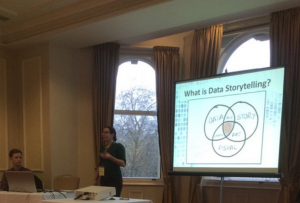
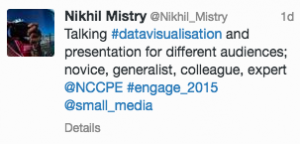
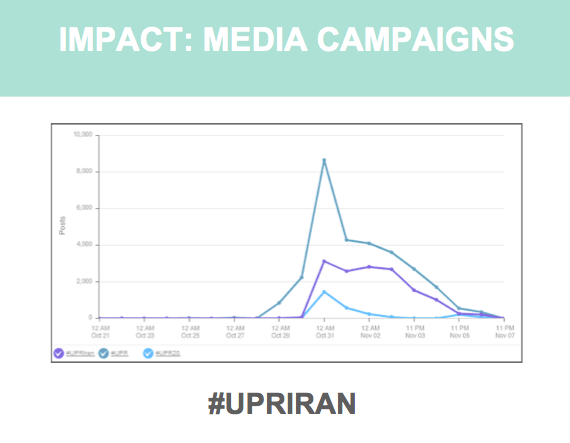
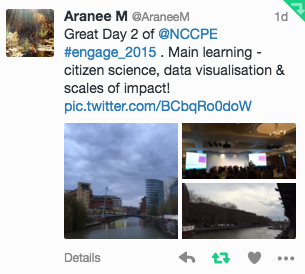




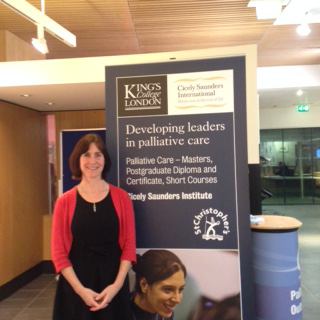












 Dr. Ashraf cited on ‘Modest Fashion’ in The Guardian
Dr. Ashraf cited on ‘Modest Fashion’ in The Guardian NIHR-funded research launches website
NIHR-funded research launches website Academics write for newspaper in Nepal
Academics write for newspaper in Nepal New paper published on disability in women & girls
New paper published on disability in women & girls MSCA Postdoctoral Fellowships 2025 Call
MSCA Postdoctoral Fellowships 2025 Call ERC Advanced Grant 2025 Webinar
ERC Advanced Grant 2025 Webinar Horizon Europe Work Programme 2025 Published
Horizon Europe Work Programme 2025 Published Horizon Europe 2025 Work Programme pre-Published
Horizon Europe 2025 Work Programme pre-Published Update on UKRO services
Update on UKRO services European research project exploring use of ‘virtual twins’ to better manage metabolic associated fatty liver disease
European research project exploring use of ‘virtual twins’ to better manage metabolic associated fatty liver disease